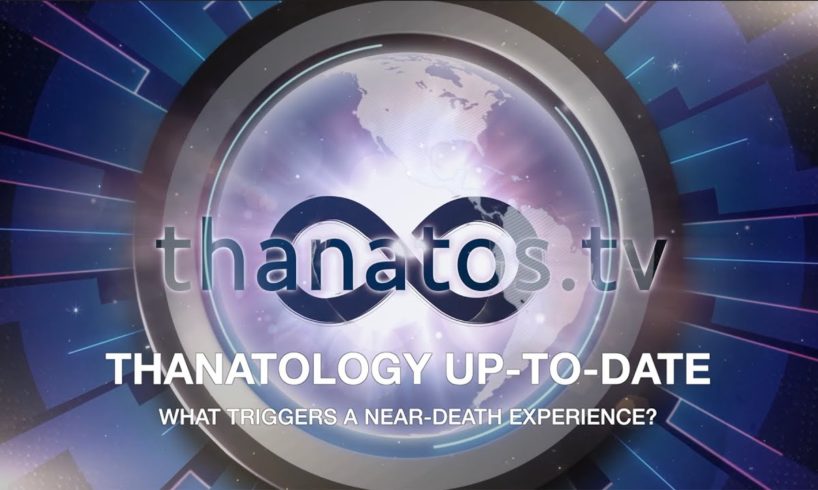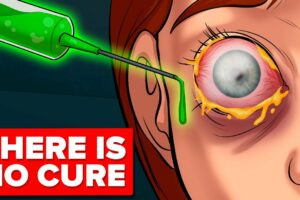
Reports on near-death experiences often start with a surprising experience such as an accident. However, there are also situations where people experience death in agony.
Werner Huemer talks to Swiss physician and death researcher Dr. Reto Eberhard Rast about what triggers a near-death experience.
Contents:
00:00:11 Studies on near-death experiences in agony
00:06:33 The point when the near-death experience begins
00:08:40 A trigger for near-death experiences
Credits:
Director: Mehmet Yesilgöz
Translation: Katrin Salhenegger-Niamir
Voice-over: Aryan Salhenegger-Niamir, Werner Huemer
Editor, Interviewer: Werner Huemer
℗ Mediaservice Werner Huemer
© 2022 Thanatos TV EN
PLEASE JOIN OUR CHANNEL:
https://www.youtube.com/channel/UC95WPHh1j9frBR7gyMOuBeQ/join
PLEASE SUPPORT OUR WORK WITH YOUR DONATION:
https://www.paypal.com/donate?hosted_button_id=CNDY6LJZFU3GN
source



![13 TRUE SCARY STORIES [Compilation Vol. 44]](https://www.theviralist.com/wp-content/uploads/2024/05/13-TRUE-SCARY-STORIES-Compilation-Vol-44-300x200.jpg)



I had a NDE where I died in a car accident but when I came back into my body I was completely unscathed and my car was behind the car we rammed to my death.
Reminds me of your guy that just happened to get saved by some unknown guy that just happened to show up at the right time. I'm pretty sure he died but came back at that same come-back point right before the death occurred. It seemed that there was "no physical danger" because his timeline was altered so as to change the death event into a "near death" event. I would bet everything that most of these events are like this.
There's nothing physical about any of this. It's all mind.
Great interview. No spoon feeding here.
After studying NDEs & OBEs for many years I am convinced they are not just mere biological tricks of the dying mind. I think there is much more to it than that. But I do wonder why most people who experience a life-threatening ordeal, such as a cardiac arrest, do NOT have any such experience. It seems the vast majority of people have no memory or recollection of their period of unconsciousness. In particular, anaesthesia is a good example. A liquid inserted into the vein causes oblivion. Now that is weird and mysterious. What happens to consciousness during this period? Makes you wonder.
the question of what causes NDE's is all wrong. first we need to use the information we have to define what is a NDE.
In my view the NDE should categorize UNDER OBE's (Out of Body Experience's). If someone's brain stops functioning for one minute, has an out of body experience looking at their body, goes straight back into their body, and none of this occurred with any medical monitoring or medical professionals then that person was "temporarily dead" or near death and also had an Out of Body Experience.
the only significance of researching NDE's as a subject category is because of the medical details that go along with it. we can prove that consciousness is creating memories and functioning while the brain is not functioning.
the NDE can prove scientific misunderstandings and assumptions about consciousness, because the brain is supposed to be "dead", they are being medically monitored, while the experiencer is reporting things that they had no way of knowing according to scientific convention.
however what the NDE is is an OBE that has been caused one way or another. this does not explain how OBE's are caused.
some NDE's are quick OBE's with little spirtual implication. some NDE's go further, and could be construed as a spirtual experience. there are some NDE's that go much further with a spirtual exploration than others. it seems to my view that some people have more capacity to go with the spirtual experience and learn more spirtual realies, while others are much more attached to their earthly reality and gain a limited spirtual perspective while learning more about earthly matters.
there is a range of levels to NDE's that seem to be more so or less so attached to earthly matters. the more earthly focused experiences seem to be less spirtually graduated.
there are also a range of OBE's. during most OBE's the experiencer tends to stay more attached to earthly matters very much like the less spirtually graduated NDE's. potentially the most significant difference between a less spirtual NDE'r and a less spirtual OBE'r is that the NDE provides some evidence about the nature of consciousness.
you are never going to learn what causes an NDE until you include the OBE, because it is the greater subject body of the two.
during the NDE the experiencers connection to earthly matters tends to be significantly loosened of separated. many if not all religions teach in one way or another to become dead to this world to discover the life of the next world. being physically closer to death puts you closer to the spirtual world, but so can a spirtual life.
a spirtual OBE can go significantly further than any NDE ever can. if you have an OBE and they offer for you to stay, then the body will die and the soul will go further than anyone who ever came back (not including the story of Jesus of course…).
When there is a german video version like here obviously, could you please link to it in the description of the video – and please also do it the other way round with a link to the english version in the german video description.
Thanks in advance!
It feels like this guy doesn't truly believe in the afterlife and he try's to explain everything in a psychological or physiological way. Watching interviews like this feels like going backwards in my spiritual journey and therefore I don't find these types of interviews very helpful to me.
Excellent question.
These talks always lead to deep thinking, on several topics. Yet I don't understand the need to prove NDEs or an afterlife–it seems there's great psychological benefit to believing it and no harm whatsoever. It feels good, it's reassuring, it's thought provoking to accept the reality of an afterlife as described by such a variety of so very many people who've had NDEs. Perhaps it can never be "proven" but that doesn't matter in the least. I know what I've experienced, and I see that it's healthy, beneficial to believe in an afterlife, though I'm not religious. I'm definitely looking forward to passing someday and that eagerness makes my life better.
I think that what is painful is returning to a body that was experiencing pain at the time that they leave the body. They go from pain to an absence of pain. Returning to the body means returning to the physical pain. But I do realize that people say that it is actually painful to get back into the body. I wonder if that part is due to resistance on the part of the person returning to their body.
Thank you. I enjoyed this interview.
Your channel seems more scientific and to me, appears that your channel discounts those who are brave enough to share their stories. I don't know who this guy's you interviewed but so disappointed. I will now unsubscribe. I wish your channel the best.
Good discussion. Thank you.
Uhhhhhhh,. Near Death?
Another excellent interview with Dr. Eberhard ☺️
how do you anything for sure?? nothing like drowning , feels so calm.
I would like to read the original account of the drowning boy from 1847. Do you have a link available?
Making death a pleasant experience doesn't really jive with evolution…wouldn't our genes want death to be awful so that you continue to fight to survive?
Yayyy! Another video! :3
First. :3
Best regards for wonderful channel from Croatia